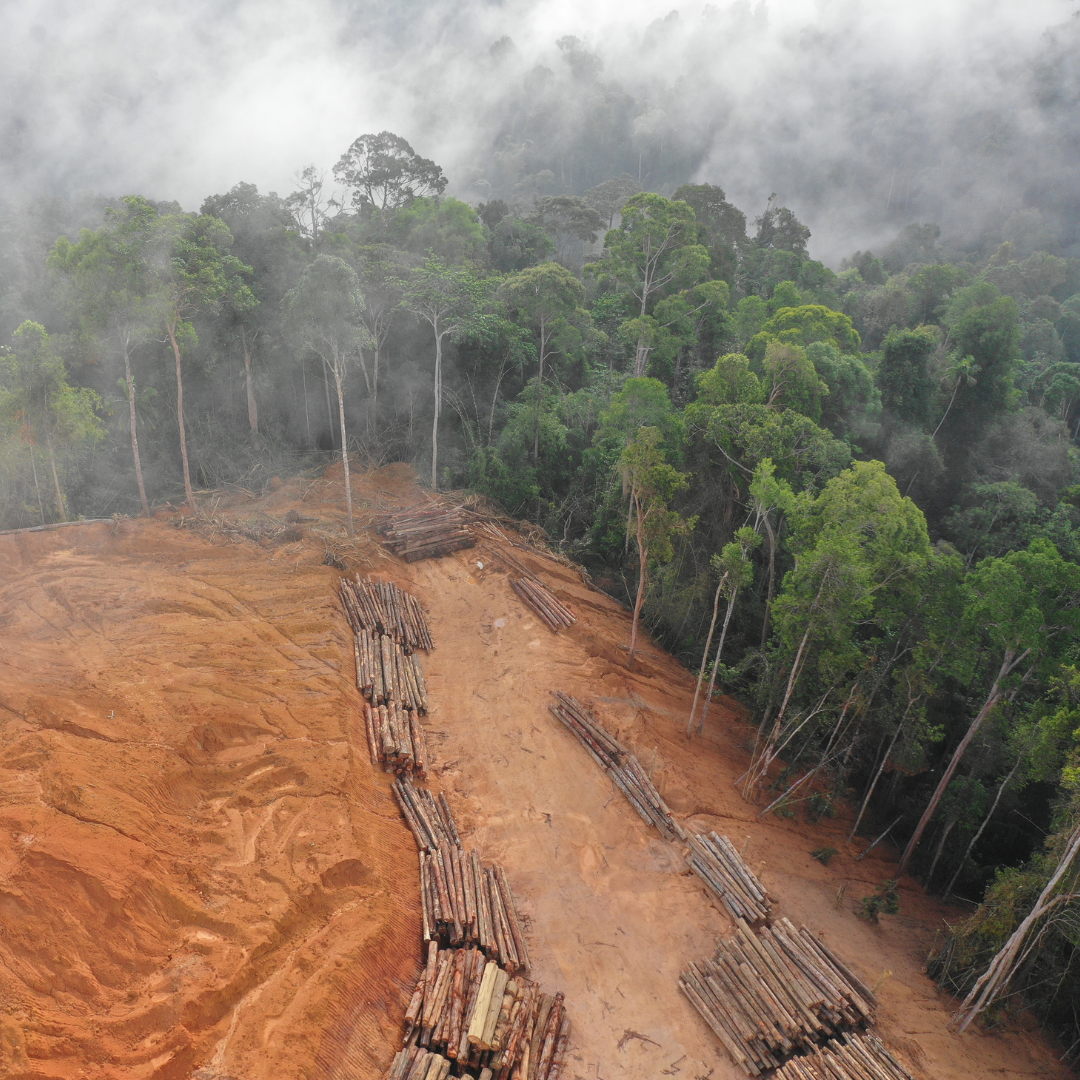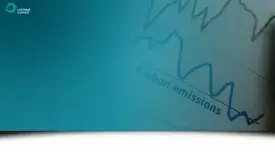The impact of EU Deforestation Regulation
From 30th December 2025 all EU importers, exporters and traders are required to demonstrate that their EUDR-applicable products have not contributed to deforestation or forest degradation.
The EU Deforestation Regulation and the associated reporting requirement are applicable to a wide range of commodities such as wood, rubber, cattle, cocoa, soy, palm oil, coffee and derivatives such as tires, cardboard, leather and furniture.
EUDR imposes forestry standards on products sold within the EU, regardless of whether they originate from the European Union or elsewhere.
Additionally, EU exporters are subject to EUDR, resulting in the following obligations:
Creating a due diligence system
Depending on your organisation's size and scale, you must implement a due diligence system with three key steps: collecting detailed product information, making risk assessments based on the data and documenting the measures to mitigate any found risks.
Generating a due diligence statement
Statements act as proof of compliance from you as the responsible trader, and are required to be completed in a specialised EU-system, covering all imports and exports.
Inform downstream suppliers
Your due diligence statements will receive an ID, which you are obliged to store, keep an account of and pass on to any downstream company which you do business with.
How we help you stay EUDR compliant
Goods classification
The HS-code of a product will determine if it falls under the EUDR regulation. Our experts support you in determining and updating your goods classification records for accurate EUDR implementation.
EUDR DD-Statement
We provide you advice on issuing due diligence statements and create them as part of the import or export clearance process.
EUDR reporting
We provide you with the full dataset of all EUDR-related clearances, making reporting and audits easy for you.
EUDR training
The extensive knowledge of our trade experts is at your disposal with live and online trainings, helping you and your organisation to understand EUDR and remain compliant.
EUDR goods clearance
Available throughout the EU for both import and export clearance, we are here to help keep your supply chain compliant and on time.
Centralised clearance solutions (EDI)
Seamlessly connected clearance solutions with live Track & Trace capabilities, customised for your needs and integrated with your existing IT-solutions.
EUDR Consequences for your business
We bet you're not looking for supply chain disruptions and penalties...
It's crucial to have a tight grip on your supply chain
You must be able to show exactly where your EUDR-related products and raw materials have originated from, even at the level of exact GPS-location. As part of the EU Deforestation Regulation, your suppliers must also adhere to standards regarding welfare, biodiversity protection, anti-corruption, and other rights set out in the UN Declaration on the Rights of Indigenous People and their local laws. If exporting from the EU, you must similarly prove your cargo has not contributed to forest degradation.
You must invest in compliance of your goods
EUDR dictates you must carry out due diligence reviews on your suppliers, conduct risk assessments for each product and implement risk mitigation processes. As final proof of this, you need to provide a compliant due diligence statement - including detailed information on the goods and their origin - to your national authority .


Ignorance of EU-regulations is not taken lightly. The EU has listed the following potential consequences of EUDR non-compliance:
- Confiscation of goods.
- Temporary exclusion from public procurement and funding.
- Temporary prohibition from trading EUDR goods.
- Higher requirements for due diligence reporting.
- Fines of up to 4% of your previous year’s EU turnover.
Reduce your risks of supply chain disruptions and penalties
How can we help you?

EUDR support is part of our range of trade solutions
If your question isn’t answered here, don’t hesitate to get in touch.
To which commodities does EUDR apply?
The EUDR regulation targets several commodities considered a deforestation risk due to the expansion of agricultural land. Currently, it applies to these products:
- Cattle, wood, cocoa, soy, palm oil, rubber, coffee
- Derivatives of the above commodities, such as leather, chocolate, tires, paper products or furniture.
This means EUDR is applicable to a wide range of end products, because of the widespread use of wood, paper, leather, palm oil and rubber in end products
To which type of companies does EUDR apply?
Deforestation Regulation applies to all businesses
- Importing
- Exporting
- Manufacturing
- Reselling
any commodities that are mentioned as part of the scope of the regulation.
If you are an SME not directly importing or exporting, then you have a smaller list of obligations surrounding the EUDR. For example, you will need to work with the main importer/exporter to obtain references for paperwork.
If this applies to you, then expect clearer advice from the government and your agent in late 2024 or early 2025 for this type of operation. For the latest guidance, please get in touch with one of CSG’s compliance team.
What’s required of your suppliers under the EU Deforestation Regulation (EUDR)?
One of the main concepts of EUDR is precise supply chain mapping. You must be able to show exactly where the commodities in your shipment have originated from, not only by country or region, but by the exact plot of land in coordinates. This land must not have been deforested after 2020.
In addition to conditions on forest degradation, EUDR requires that suppliers adhere to standards regarding welfare, biodiversity protection, anti-corruption, and other rights set out in the UN Declaration on the Rights of Indigenous People and any local laws guiding them.
Additionally, the EU Deforestation Regulation requires that any deforestation complies with the legal standards for the country of origin. This part of the EUDR cites a report from the Forest Policy Trade and Finance Initiative, which estimated that only around 30% of commercial deforestation was legal between 2013 and 2019.
What are your obligations and risks as an EU trader?
Despite the onus being on your suppliers to produce and deliver information accordingly to the EU Deforestation Regulation’s standards, you are responsible for putting your goods on the EU market.
Therefore, you must carry out your due diligence on suppliers, store all information as proof and provide a statement of EUDR compliance to your national authority for each batch of goods.
Your due diligence should include:
- Collecting detailed information which confirms your products are compliant.
- A risk assessment for each product.
- Risk mitigation, including independent surveys and working with suppliers on improvements.
Provided your due diligence results in a compliant purchase, you must present a statement of due diligence for each shipment. The reference number generated must then be present on all paperwork and passed on to buyers down the chain. This is the same in reverse when exporting goods out of the EU.
If your supplier cannot meet the requirements for EUDR, then you will need to source an alternative who does.
You can expect compliance checks from the national authority for your member state, who may inspect you without warning and require immediate remedial action if you are found to be noncompliant.
How does EUDR impact exporters?
If you are exporting purchased or manufactured EUDR products, you will need to set up a similar due diligence system as importers do so that you can confirm the timber used is EUDR compliant.
If you are the producer of the timber, then you will need to be able to provide all of the detailed information that your buyers and their partners require. This includes the coordinates of the timber used, confirmation that the land wasn’t deforested since 2020, and risk management processes in place.
If you are unable to provide this information, then you need to change suppliers or take remedial action in order to export your products.
Does EUDR impact goods which move between national borders within the EU?
The EU Deforestation Regulation considers trade within EU as well. If your organisation is an SME, you will need to collect information on your suppliers, and make sure that you receive the details of the due diligence statement made by them.
If you are selling to another company, you will need to pass on the statement ID.
Large trader companies who complete many purchases and sales of EUDR goods will need to implement a due diligence system the same as direct importers and exporters do.
Customs Support Group provides Europe-wise CustomsTech solutions, which can automate and collate data to minimise the risk of noncompliance or error.
Do EUDR requirements vary for different types of companies?
The EU Deforestation-free Regulation (EUDR) sets different requirements for operators and traders based on the size of their business. Read more about it on the EUDR page of the European Commission.
Is EUDR related to CBAM?
The Carbon Border Adjustment Mechanism (CBAM)requires the purchase of CBAM credits on selected carbon intensive products. Both EUDR and CBAM are part of the EU's Green Deal, but are standalone measures.
As with the EUDR, CBAM requires due diligence with your suppliers and can be made easier with the help of digitalisation. Get in touch to find out more.
Overcome your EUDR-challenges with Customs Support Group












